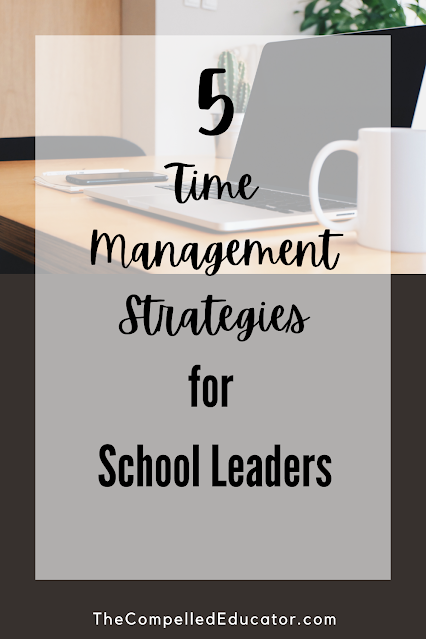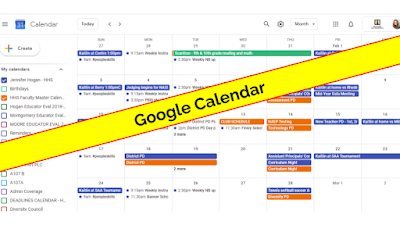There is never a day that I come to work and wonder if being an educator is what I'm supposed to be doing with my life. Back when I was a young teacher, I had been teaching and coaching for four years when I decided to go into business with my husband. After 2 years of being out of education, I knew that being an educator was my calling. So since then, after getting back into education, I have a sense of purpose every day.
Six years ago, in 2007, I left a school where I was assistant principal to go to a school where I would be principal. Two years later, I chose to leave that school system. Leaving the principalship meant that I would go to Hoover High School to return to the classroom. It was an unforeseen turn of events in my plan for myself.
During my second year in the classroom, I had a student in my class named Steve*. Steve never really talked to anyone except for one other female in my class, Beth*. Steve wasn't anti-social, but he didn't seem to have a lot of confidence in reaching out to other students. Often, Steve and Beth and I would chat during advisory period (lunch/advisory period was part of that class period), and he had a terrific sense of humor.
One day, when Steve came to class I noticed that he seemed upset. He was sitting beside Beth during class at the lab tables, and I noticed that they were passing notes back and forth quite a bit. Realizing that he was upset, I didn't say anything about it, knowing that I would have an opportunity to chat with him in advisory. The lesson in class that day was one where I would work an example problem on the board then walk around and help students and so on. As I walked around, I noticed that Steve had his head on his desk. When I got next to him, I put my hand on his shoulder and leaned down and asked him if he was okay. He looked at me with tear-filled eyes. I asked him if he wanted to step out to the bathroom so that he could have a minute to himself. He did.
When he returned, it was a few more minutes until the bell rang for advisory to start. After the bell rang, I went to my computer to check the roster for students who would be leaving for the tutoring we offer during the advisory period. Students were leaving and I was signing passes to the library when Steve approached my desk. He asked, "Are you busy?"
I said no and stopped what I was doing and looked at him. He said, "I see that you're busy." I told him that I wasn't too busy for him and I said, "Are you okay?"
One day, when Steve came to class I noticed that he seemed upset. He was sitting beside Beth during class at the lab tables, and I noticed that they were passing notes back and forth quite a bit. Realizing that he was upset, I didn't say anything about it, knowing that I would have an opportunity to chat with him in advisory. The lesson in class that day was one where I would work an example problem on the board then walk around and help students and so on. As I walked around, I noticed that Steve had his head on his desk. When I got next to him, I put my hand on his shoulder and leaned down and asked him if he was okay. He looked at me with tear-filled eyes. I asked him if he wanted to step out to the bathroom so that he could have a minute to himself. He did.
When he returned, it was a few more minutes until the bell rang for advisory to start. After the bell rang, I went to my computer to check the roster for students who would be leaving for the tutoring we offer during the advisory period. Students were leaving and I was signing passes to the library when Steve approached my desk. He asked, "Are you busy?"
I said no and stopped what I was doing and looked at him. He said, "I see that you're busy." I told him that I wasn't too busy for him and I said, "Are you okay?"
At that time, someone else walked up for me to sign their pass. I told Steve, "Come around here (behind my desk.)" He came around my desk and sat down and cried. I gave him a yellow notepad to write down what was going on with him while I signed a student's pass.
After he wrote on the notepad, he handed it back to me. This is what he wrote: "I was going to kill myself today. I have a loaded gun in my backpack."
After he wrote on the notepad, he handed it back to me. This is what he wrote: "I was going to kill myself today. I have a loaded gun in my backpack."
I don't remember what else I read that day on that notepad, but I knew that I needed to act fast. I told him that I was glad that he shared that with me and that I was glad that he didn't do anything to hurt himself.
As he sat there, I looked around the classroom and made eye contact with a student. I motioned with my head for her to come to my desk, and I continued to talk to Steve. When she got to my desk, I wrote on a sticky note, "I need the crisis counselor and the SRO. Immediately." I gave her a look that I hoped was sending the message that she needed to go quickly.
While she was gone, I continued to talk to Steve. He told me that he was upset because other students called him "Stupid." He was unhappy at home, and he had been trying to find a job but was unsuccessful.
While she was gone, I continued to talk to Steve. He told me that he was upset because other students called him "Stupid." He was unhappy at home, and he had been trying to find a job but was unsuccessful.
In my mind, I was playing through scenarios and wanted to be sure that if he got up I could get to his backpack before he could. After a few minutes, the crisis counselor and two School Resource Officers (SROs) came to my room. When they got around to where I was with Steve, I introduced them to Steve, then showed the note to one of the officers. He went to Steve's backpack, and I shared with the crisis counselor what was going on with Steve. They left with Steve so that the counselor could talk with him and call his parents.
I called my husband that afternoon and cried as I told him the story. I had always pulled for the underdog, but that moment changed my life forever. I vowed that as much as possible, I would never allow a student to be bullied again. I promised myself that I would make time for anyone who needed me, and not be too busy to listen. Now in my third year as assistant principal at Hoover, I am convicted more than ever that kids need us to be "present" for them.
Steve was expelled from our school, and since then has contacted me with messages on Facebook. He apologized for what he had done and he thanked me. He has even shared that he wants to be a teacher one day. He found a job close to his home, and even returned to another school after the mandatory one-year expulsion period.
After that day, I realized that my plan is not really my plan. After wondering how and why my career had made so many different turns, I understood that I was exactly where I was supposed to be and always had been.
If I had told Steve that I was busy, or if I didn't make time for him, then that day could have ended very differently.
I called my husband that afternoon and cried as I told him the story. I had always pulled for the underdog, but that moment changed my life forever. I vowed that as much as possible, I would never allow a student to be bullied again. I promised myself that I would make time for anyone who needed me, and not be too busy to listen. Now in my third year as assistant principal at Hoover, I am convicted more than ever that kids need us to be "present" for them.
Steve was expelled from our school, and since then has contacted me with messages on Facebook. He apologized for what he had done and he thanked me. He has even shared that he wants to be a teacher one day. He found a job close to his home, and even returned to another school after the mandatory one-year expulsion period.
After that day, I realized that my plan is not really my plan. After wondering how and why my career had made so many different turns, I understood that I was exactly where I was supposed to be and always had been.
If I had told Steve that I was busy, or if I didn't make time for him, then that day could have ended very differently.
Next time someone asks you, "Are you busy?" I encourage you to make time for them. It could be the opportunity to save someone's life.
*Students' names changed to protect privacy.
*Students' names changed to protect privacy.






